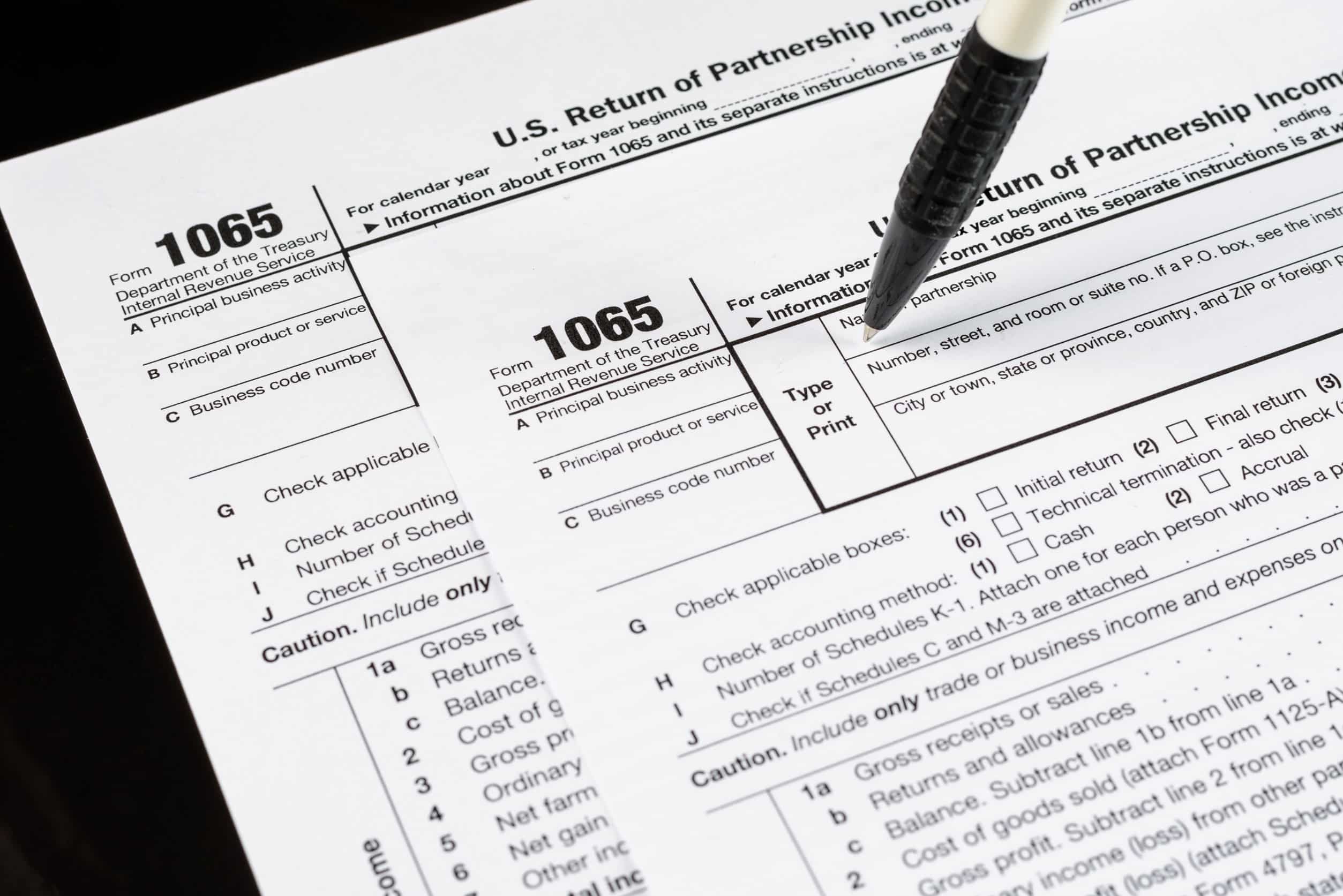The Eric Sheldon CPA, PC Blog


Trusts and Estates Accounting: Understanding the Basics for Effective Administration
Trusts and estates are vehicles often utilized for wealth transfer and estate planning. While the primary focus is usually on asset allocation, tax advantages, and


The Importance of Financial Planning: Securing Your Future
Think of your financial journey like a road trip. Sure, you could hop in the car with no map, no gas money, and no plan—but


Protecting Legacies: The Importance of Accurate Trusts and Estates Accounting
Trusts and estates are complex financial entities designed to manage and distribute assets according to specific guidelines or wishes. Whether you’re a trustee, executor, or


Navigating Life’s Financial Milestones: How Financial Planning Can Help You Thrive
A financial plan is not just a list of your income and expenses; it’s a roadmap that guides you towards financial stability and wealth creation.


Maximizing Efficiency in Trusts and Estates Accounting: Best Practices and Strategies
Trusts and Estates accounting often involve meticulous tracking of assets, income, expenses, and distributions, requiring strong organizational skills and attention to detail. With various fiduciary


Mastering Your Finances: 8 Essential Tips for Effective Financial Planning
In the labyrinth of life’s responsibilities, financial planning is a critical pillar that holds up the structure of our well-being and future security. Yet, many


Navigating the Complexities of Trusts and Estates Accounting: A Comprehensive Guide
Trusts and Estates accounting is a specialized field that deals with financial management, tax planning, and allocation of assets within trusts and estates. The complexities


From Goals to Action: Crafting a Personalized Financial Plan
When it comes to financial well-being, a one-size-fits-all approach simply doesn’t work. “Personalized financial planning is the key to long-term stability and wealth accumulation,” informs


Financial Planning with Roth IRA Conversion: Simplified
If you’re planning for retirement, you’ve probably heard about Individual Retirement Accounts (IRAs). But did you know there’s a technique that could help you manage


Creating a Solid Financial Plan: A Step-by-Step Guide for Success
Financial planning is essential for anyone who wishes to meet specific financial goals, secure their financial future, and enjoy peace of mind. A solid financial


Avoiding Common Pitfalls in Trusts and Estates Accounting
Lessons Learned and Expert Advice Trusts and estates accounting is a complex area that requires precision, detailed record-keeping, and an understanding of both legal and


How to Have an Open Conversation with Aging Parents About Money
As our parents age, it becomes increasingly important to address important topics like finances. Discussing money matters can be challenging and uncomfortable for both parties


Age and Treasures: Don’t Let Your Kids Raid Your Golden Fort!
Learn to safeguard your wealth from early inheritance claims. It’s an unfortunate reality that, in our latter years, we may find ourselves facing unwelcome pressure


Planning Ahead: Ensuring Financial Security After a Dementia Diagnosis
Receiving a dementia diagnosis is undoubtedly a life-altering event, not just for the individual affected but also for their loved ones. Alongside the emotional and


When to Address Asset Protection with Your Aging Parents
Navigating conversations about asset protection with aging parents can be a delicate endeavor. Nevertheless, such dialogues are essential to ensuring their financial security and peace


Understanding Tax Underpayment Penalties: A Simplified Guide
Navigating through the complex world of taxes can be a daunting task, particularly when it comes to understanding potential penalties associated with underpayment of taxes.


The Top 10 Key Factors Every Pass-Through Entity Needs to Know
In the dynamic world of business, it’s vital to comprehend the tax implications associated with your chosen business structure. This is especially true for pass-through


The SALT Cap Workaround for Pass-Through Entities
In response to complaints about the Tax Cuts and Jobs Act of 2017 SALT cap, many states have authorized workarounds that allow a pass-through entity


Save on Taxes and Protect Your Assets: When to Consider Changing Your Business Entity
As a business owner, it’s essential to understand how your legal structure affects your taxes and liability. Let’s break it down into simple terms. Business


Business Tax Incentives: Section 179 vs. Bonus Depreciation
Section 179 and bonus depreciation are both tax incentives available to U.S. businesses that allow them to write off the cost of qualifying property in


Depreciation, Amortization, and Section 179 – How They Impact Your Business
When it comes to tax time, maximizing your business deductions is paramount. Here are some tips for depreciation, amortization, and Section 179 rules. What is


What Qualifies For the 5 to 7 Year Depreciation Asset Class?
This depreciation asset class typically includes assets that have a useful life of between 5 and 7 years, and are typically considered to be intermediate-term


How Passive and Active Income or Losses Offset Each Other
Business entities with pass-through taxation, such as an S Corp, LLC, sole proprietorship, or partnership, do not retain losses within the business entity. They are


When and How to Establish a Private Foundation
A private foundation may be an appropriate option if you want to make a lasting impact on a specific cause, involve your family or a


When and How to Establish a Public Charity
If you have a passion for a particular cause and want to make a difference by addressing a specific need in your community or the


The Good, the Bad, and the Ugly of a Public Charity
The primary goal of a public charity is not to generate revenue, but to serve the public good by addressing social and community issues. Public


Pros and Cons of a Private Foundation
Private (family) foundations are established and funded by individuals or families. They are typically focused on a specific cause or area of interest, such as


Public vs Private (Family) Foundation: Differences and Similarities
Foundations are organizations that aim to achieve a specific goal, often related to charitable or philanthropic causes. There are two main types of foundations: Public


Fiduciary Accounting Tips for the Layman
Fiduciary accounting is the process of recording and reporting the transactions and activities of a trust, estate, or conservatorship. This is done in the normal


How to Avoid Trust Accounting Disputes
If you are the beneficiary of a trust, you may be able to challenge the Trustee’s accounting. It can be a messy, expensive and time-consuming


What is fiduciary accounting and when would I need it?
Fiduciary accounting (sometimes called “court accounting”) is a comprehensive report of the activity within a trust, estate, guardianship, or conservatorship during a specific period. It


Common Fiduciary Accounting Mistakes
In the financial services industry, fiduciaries have a duty to do what is best for their clients. They have to make decisions based on sound


Maximize Tax Savings by Year-End
As we close out the year and get ready for tax season, here’s what you can do to maximize your tax savings by year-end. Personal


Tax Tips for Retirees and Retirement Accounts
For many years, IRS rules stated that taxpayers could not keep retirement funds in their retirement accounts indefinitely. They must start taking withdrawals from their


Tax Tips for Parents and Individuals
As we close out the year and get ready for tax season, here’s what individuals and families need to know about tax provisions for 2022.


Do you work from home? Here are some tax tips for you.
For employees that work from home, your at-home expense deduction have been reduced. However, for self-employed workers that work out of their home, deductions still


How Can the Rich Pay So Little in Taxes
You may have heard that the uber-wealthy pay little in taxes. In some cases, it’s true. But how? The better question might be, how can


5 Tax Tips for the Rich and Famous (and you!)
Taxes can be a huge expense—for everyone. The following tax tips are geared toward millionaires, but that doesn’t mean you cannot use them too. After


Don’t Fall For These Tax Traps
Year-end is just around the corner. Now’s the time to consider your taxes and what you can do to minimize them and keep as much


Retain Your Wealth Using These Tax Tips
In September, Business Insider published a story about Patagonia’s founder, Yvon Chouinard, who saved more than a billion dollars in taxes by giving away his


Keep Your Payroll on Track
Avoid the IRS from breathing down your neck. Did you know if you miss employment tax deposits the IRS deploys a Failure to Deposit


Inflation Reduction Act Offers Electric Vehicle Tax Incentives
The Inflation Reduction Act (IRA) contains funding for energy programs, including a $7,500 tax credit for electric vehicles (EVs). The law will also provide tax


5 Small Business Payroll Tips
How much time do you spend on payroll each month? In some cases, it may feel like too much. Handling payroll can be challenging, and


5 Startup Payroll Tricks
When your just getting started, doing payroll manually might make sense. But, when you start adding subcontractors or employees, things get a pick trickier.


Revised Homeowner Efficiency Tax Credit Explained
The Inflation Reduction Act is extending the homeowner efficiency tax credit with its new Energy Efficient Home Improvement Credit, previously called the Nonbusiness Energy Property


7 Bookkeeping Tips for Small Business Owners
As a small business owner, you have to make sure that your books are in order and that you can follow the laws governing your


New Credit for Commercial Electric Vehicles
If you’re planning to acquire a qualified electric commercial clean vehicle, you may want to wait to take delivery after December 31, 2022, but before


IRS Funding Boost and Its Effect on You
One provision in the Inflation Reduction Act aimed at improving IRS customer service that has been met with criticism. The legislation allocates $79.6 billion


Inflation Reduction Act of 2022 – Summary
The Inflation Reduction Act of 2022 is a proposed bill in the 117th United States Congress. Its main objectives include curbing inflation, reducing the deficit,


6 Tax Strategies to Offset Income
As year-end approaches, you may be wondering how you can offset income to reduce your tax burden. As a business owner, and individual, here are


What are passive real estate income losses and expenses?
If you own a rental property and incurred a loss during the year, you may be able to deduct your loss as an expense, known


8 Sources of Business Income
There are two main types of revenue streams in a business—active and passive. They are related to the product or service being offered and the


The Importance of Recording Income Losses and Expense Offsets
Income losses and expense offsets are used to reduce the tax burden on an individual or company. These can be carried forward or backward, depending


Should I Change My Business Formation?
Are you unsure about whether you should change your business formation? Maybe your company’s growing. Maybe taxes are piling up and you want a break.


S Corp or LLC – Which makes the most sense for my startup?
According to these small business statistics, “52.1% of small employer firms in the U.S. are S-corporations.” On the flip side, “81% of the total small


Why is the Legal Structure of Your Business Important?
Before deciding on the right business structure, you should first understand the tax implications and the legal protections that are available for new companies. Once


Can I save money based on my company’s formation?
The process of incorporating a company is commonly referred to as company formation. The benefits of company formation are numerous. Tax savings are one of


Why and when you want to set up a trust?
A trust can be a useful estate-planning tool for lots of people — not just billionaires. Is a trust right for you? There are two


What Are The Pros and Cons of a Trust
If you’re considering creating a trust, you might want to know more about the pros and cons. A trust can transfer your home title and


Top 5 Reasons to Have a Trust Plus The Types
A trust serves a number of purposes in family planning. For example, it can Ensure that assets are professionally managed across generations; Protect beneficiaries from


At What Net Worth Do I Need A Trust?
You may have heard the misconception that you need to be wealthy to have a trust. That is not true. You don’t have to be


Accounting Method Changes for Small Business Taxpayers
Recently, the IRS and Treasury released two revenue procedures on accounting method changes for small business taxpayers. Rev. Procs. 2022-9 and 2022-14 enable small business taxpayers, not a


3 Tips Real Estate Brokers Need to Know About Accounting
Every transaction in the real estate business is a big deal. That is why real estate brokers need to understand the fundamentals of accounting.


Starting a real estate agency? 5 things you need to know.
If you’ve decided to open your own real estate agency, here are five things you need to know. 1. Weigh the Pros and Cons


What tax breaks can a real estate agency take?
You own an agency or a brokerage and you’re looking for some tax breaks. Here are several tax breaks to consider as you plan for


Real Estate Investing and It’s Tricky Tax Slope
You may have heard that diversifying your investment portfolio is good and that mixing in real estate investments can create valuable, recurring cash flow. But


How is Crypto Reported to the IRS?
Under the broker information reporting rules, brokers must report transactions in securities to both the IRS and the investor on Form 1099-B. It encompasses cryptocurrency


How to Account For Crypto Payments In Your Accounting Software?
With the increased attention cryptocurrencies and other digital assets are getting from consumers, companies and governments, you might be wondering how you account for payments


How to Get a Crypto Loan?
Before jumping right to crypto loan requirements, let’s first take a look at what crypto lending is. According to Stilt, “Crypto lending refers to


What’s the Difference Between Crypto and NFT?
Before exchanging payments using cryptocurrency or NFTs, it’s important to know the difference and how each might be used in your business. What is


When Hiring a Virtual CFO Makes Sense
You may wonder when to hire a virtual chief financial officer (CFO). This post covers four things to consider, the benefits, costs, and expectations you


Bookkeeping Hacks for the Savvy Business Owner
There are several bookkeeping hacks to help you streamline your accounting process. These methods allow you to spend less time on bookkeeping, freeing up your


3 QuickBooks Tips Small Business Owners Will Love
To get started with QuickBooks, you’ll want to first separate your various areas of the business. For example, you might separate revenue by type –


Bookkeeping Tips for Setting Up an Effective Chart of Accounts
There are several reasons to create an effective chart of accounts. In business, the goal is to be able to generate good reports to manage


New Schedules K-2 and K-3 Impact Partnership Tax Filings
New Schedules K-2 and K-3 (Form 1065) have been created by the IRS to offer standardized reporting of U.S. international tax information. The new formats


Budget vs. Forecast – What’s the difference?
I came across this topic, budget vs. forecast – what’s the difference? In summary, budget focuses more on expenses and spending limits while forecast focuses


Internal Control Advantages and Disadvantages for Business Owners
Advantages A limited number of employees have access to the control elements within the workflow. For example, in payroll, the person who write the checks


Internal Controls for Business Owners Like You
The process of creating and maintaining internal controls is a crucial part of managing a any business. These goals are related to the overall effectiveness


Top 5 Male and Female Fraudsters in the 21st Century
If you’ve been watching any streaming services this winter, they’re filled with scammer stories that seem too outrageous to believe, such as “Inventing Anna,” “The


Advanced Child Tax Credit – You will need to reconcile Form 8812
In the past, Form 8812 automatically calculated what your credits for qualifying children and other dependents should be and applied to your refund or tax


Can you have both a primary residence exemption and 1031 exchange on the same property?
The short answer is Yes. How to accomplish this should be done with a tax advisor and planning it out to maximize the tax strategy.


Can you legally avoid Depreciation?
It is true you could legally avoid depreciation. However, if you depreciate every year it will put yourself at a disadvantage and lose the opportunity


Virtual Currency
Virtual Currency (Cyrptocurrency) is considered very secure because they use strong cryptography to verify the transfer of assets. When you buy and sell virtual currency,


You should consider the IP PIN opt-in
It is a pointy situation, but you should consider the IP PIN opt-in program Identity Protection PIN are not just for individuals who experienced identity


Core Business Applications
Core Business Applications my clients use for Accounts Payable: QBO, Hubdoc and Bill.com Cloud accounting and it’s ecosystem is essential for any business. Invoicing customers,


The $750K Mortgage Interest Limitation
How to use equity in your home and bypass the $750K Mortgage Interest Limitation Here’s what’s happening: Under Tax Cut and Jobs Act, for tax


Sample W-9 Request Letter
Date Dear Vendor, Enclosed is Form W-9, Request for Taxpayer Identification Number and Certification. IRS regulations require that we issue 1099 forms to certain companies


To 1099 or not to 1099
January 31st is the deadline for Form 1099-NEC/MISC. During the first month of the new year, you are hopefully rejuvenated from time off during the


